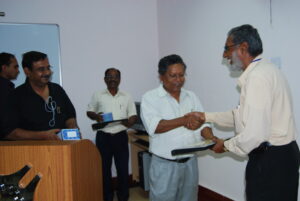About Us

The Greener Grasses activity is multipurpose Quality production of Farm Machineries in New Bengal Agro Implements. Consultancy & Motivation in new business. And develop the Net Work Marketing.
Introduction to Manufacturing Farm Machinery:
In the realm of agriculture, the role of farm machinery is indispensable. Farm machinery encompasses a wide array of equipment and devices designed to facilitate various tasks involved in agricultural production. These machineries range from tractors and combines to planters, harvesters, irrigation systems, and beyond. The manufacturing process behind these farm machineries is a complex and intricate endeavor, integrating advanced technology, engineering expertise, and a deep understanding of agricultural practices.
The manufacturing of farm machinery typically begins with extensive research and development efforts. Engineers and designers collaborate to conceptualize and prototype new equipment, taking into account factors such as efficiency, durability, environmental impact, and compatibility with diverse agricultural settings. Computer-aided design (CAD) software plays a crucial role in this phase, allowing for precise modeling and simulation of machinery components and systems.
Once a design is finalized, the manufacturing process moves into production. This involves sourcing high-quality materials such as steel, aluminum, and various composites, which are then transformed into components through cutting, shaping, welding, and other fabrication techniques. Advanced manufacturing technologies such as CNC machining and laser cutting are often employed to ensure accuracy and consistency in component production.
Assembly is another critical stage in the manufacturing process, where individual components are brought together to form complete farm machinery units. Assembly lines are commonly used to streamline this process, with each station dedicated to specific tasks such as installing engines, attaching implements, and conducting quality inspections. Automation technologies, including robotics and computerized control systems, are increasingly integrated into assembly operations to enhance efficiency and productivity.
Throughout the manufacturing process, stringent quality control measures are implemented to uphold the performance and reliability of farm machinery. Components undergo rigorous testing to verify their functionality, durability, and compliance with industry standards and regulations. Additionally, comprehensive field testing is often conducted to assess machinery performance in real-world agricultural environments and gather feedback for further refinement.
The manufacturing of farm machinery is not only a technological endeavor but also a deeply collaborative one, involving partnerships between manufacturers, agricultural experts, research institutions, and farmers themselves. By continuously innovating and improving upon existing designs, manufacturers strive to develop farm machinery that not only meets the evolving needs of modern agriculture but also contributes to sustainable farming practices and the overall advancement of the agricultural industry.
Top of Form